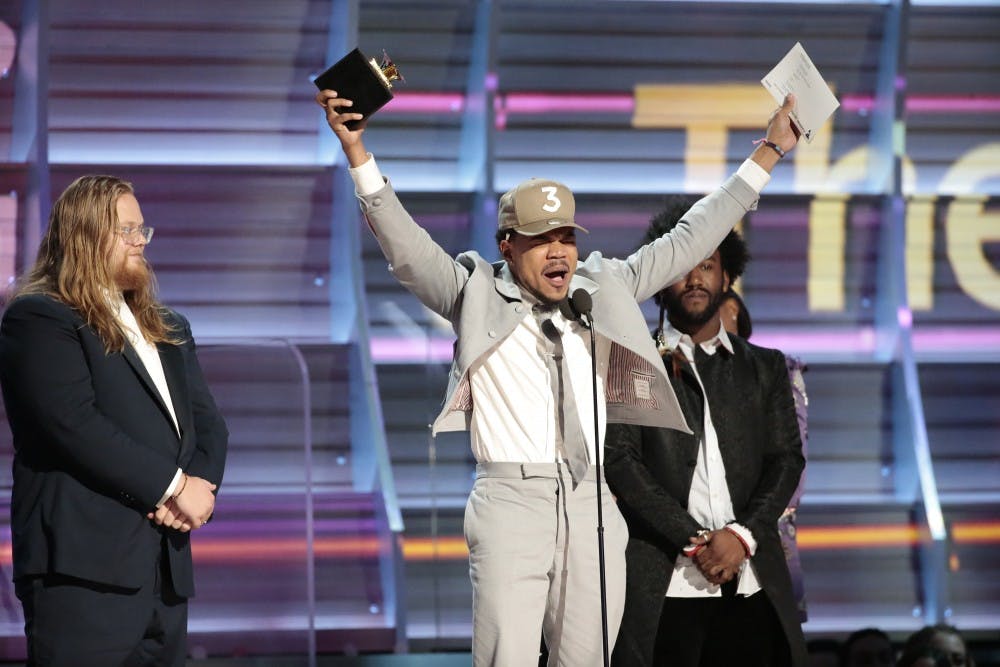Sunday marked the 59th Annual Grammy Awards, and the event was not without its triumphs. The span of 2016 covered a myriad of artful projects and giant albums, and that fact was only exemplified by the way it was condensed into a mere few-hour special. A smooth collage of today’s greats took to the stage to receive awards, perform and even pay tribute to 2016’s long list of fallen artists. Nonetheless, I would venture to argue that the most important artist of the night to take the stage did not represent the past so much as he does the future.
One of the truest moments of validation over the evening came when Chicago-based indie-rap artist Chance the Rapper won Best New Artist. In a close watching, a wave of almost predetermined relief ran over the audience at the news. It was as if everyone knew the answer was coming.
Chance the Rapper, otherwise known as Chancellor Johnathan Bennett, age 23, released a mixtape in 2016 entitled “Coloring Book” which shook the world as the alleged magnum opus of a rather new creator. His preceding mixtape, “Acid Rap,” had received a prominent cult following before “Coloring Book,” and therefore anticipation of the latter grew swiftly until its release.
The amount of progression from “Acid Rap” to “Coloring Book” is undeniable. The latest builds off the shoulders of the last, and therefore it hadn’t much chance for failing. This is also indicative of a progression in the rapper’s skills. In a matter of the three years between the pieces, he had advanced in style, verse and age. And Bennett shows just how aware he is of this steady growth via his lyricism, often citing new successes along with longing nostalgia. In literature, this schematic for content creating is known as a Bildungsroman, or something that articulates one’s coming of age.
One of the primary reasons the coming-of-age theme has such a wide appeal in music is because many of its consumers are teenagers — those yearning to come of age themselves. To this desire — an impulsive rite of passage in young people today — Bennett serves as one of the first and only bastions inspiring actual progress. He is the leader of an army of free-thinkers and jolly rancher kids, hell-bent on assuming their roles as torch-bearers and daring enough to make a colorful impact on the world. He has unintentionally seized the role of spokesperson for a generation of teens. If only to prove this point further, he has completed all of this without a record label. He is truly a prime example of authentically independent hip-hop.
Bennett would go on to win Best Rap Performance for his song, “No Problem,” featuring Lil Wayne and 2 Chainz, and Best Rap Album for “Coloring Book,” winning half of the night's rap accolades. This kind of achievement is surely indicative of something larger in his future.
Bennett has effectually evolved his audience, no longer falling in the cult listening trap. Now he will be able to further spread his message among sold-out shows and whatever other projects he finds himself working on. He is now equipped with both worthwhile ideas and attentive ears to hear them out. In this way, the world stands to benefit greatly. The thought of him doing anything else within the next few years would feel almost surreal. We’re getting more Chance soon. One just has to muster enough patience to bear the meantime.

